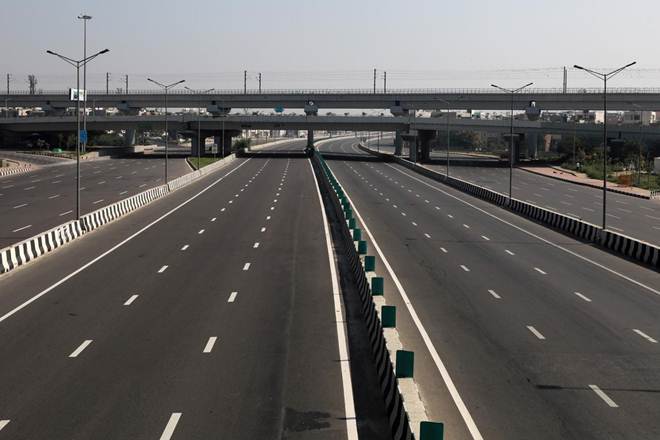Wholesale traders in Delhi have warned of a shortage of essential commodities in the coming days, adding that the required number of curfew passes is still received for movement of goods during the nationwide lockout to prevent the spread of Saras-Cove-2 infection. To do…
Essential commodities include milk, vegetables, food grains, cooking oil, consumer durables, and medicines.
The capital’s top trader’s body said on Saturday that they have written to the central and Delhi governments to issue passes so that supplies are not affected. The central government had released a list of essential items, including groceries, which are excluded. Businessmen were ordered to remain closed during the lockdown.
According to traders, the lack of curfew passes meant that the goods could not reach retail markets and short-time grocers. According to the Confederation of All India Traders (CAIT), with only 20% of the labor force and limited vehicles available, the delay in issuing passes may cause a shortage of essential items as retail stores may be out of stock.
ALSO READ: The torches shining in the sky do not solve the problem ‘: Rahul Gandhi
“We are already on day 12 [Saturday] of the lockdown. The system of issuing e-passes should be streamlined for the transportation of essential goods. In many cases, passes have not been issued even four or five days after applying. Additionally, some are being rejected without any reason. It can disrupt the supply chain, ”said Praveen Khandelwal, General Secretary (CAIT).
Curfew passes are necessary to cross the interstate boundaries of Delhi, as well as movement across the city. From 26 March, the Delhi government and the Delhi Police launched an online system where people can apply for electronic passes (e-passes) aimed primarily at workers engaged in essential services who have formal identity cards. Were not.
Wholesalers supply stock from their warehouses to various groups of retailers across the city. But modern supply chains are complex and rely on many interrelated elements to function in tandem. If a single element is interrupted, the entire chain is thrown into disarray.
“We have suggested that authorities may allow accredited merchant associations to be issued to drivers and traders, along with government officials, in a phased manner following the due process. This can help facilitate the movement of goods and services while maintaining the sanctity of lockdown, ”said Khandelwal.
However, a senior Delhi government official said that there is no such pendency. “There were some technical glitches in the beginning, but passes are being given in a day or two. We have not received any complaints till now. We will ensure that all the necessary items reach the shops on time, ”a senior official, who did not name, said.
Delhi Police spokesperson MS Randhawa said, “If specific issues are being faced in distributing essential things, we will definitely address them. Passes can only be issued to a select few service providers to maintain the provisions of lockdown. ”
Grocery store owners in many markets in Delhi said they were already running low on essential stocks such as flour, cooking oil and frozen foods.
“It has been five days since the last stock arrived. Supply at the back-end is slow. We have almost run out of flour and items such as gram flour and semolina as well as some spices, ”said Yogesh Gupta, 34, who owns a store in Gole Bazaar in central Delhi.
Traders said that they are also facing problems in arranging labor and transportation. A large number of migrant laborers in the city’s wholesale markets have returned to their home towns after the lockout Delhi.
Naresh Gupta, president of the Delhi Grain Merchants Association, said that despite old Delhi’s New Bazaar wholesale market having at least two weeks of essentials, there are not enough vehicles or labor for transportation across the city.
ALSO READ: Steps to Tackle Large Outbreaks: Govt Brings out Containment Plan as Coronavirus Deaths Rise to 75
“There is limited staff for loading and unloading. Also, we do not get trucks on time, as transporters say they do not have ply or even drivers available for duty, ”he said.
Currently, Gupta said that most wholesale dealers have only one truck available every two or three days.
Transporters in the city also said that they are facing challenges in bringing vehicles due to a shortage of staff, as well as a lack of curfew passes. “Many times, despite having an e-pass, our employees face harassment. Kulturen Singh Atwal, president of All India Motor Transport Congress, said, “My drivers are working in two or three shifts a day.”
He said that currently, only 15% are supply trucks. Atwal said that even during the lockdown, this number should be at least 25% -30%, so that essential goods can reach the markets Delhi.

